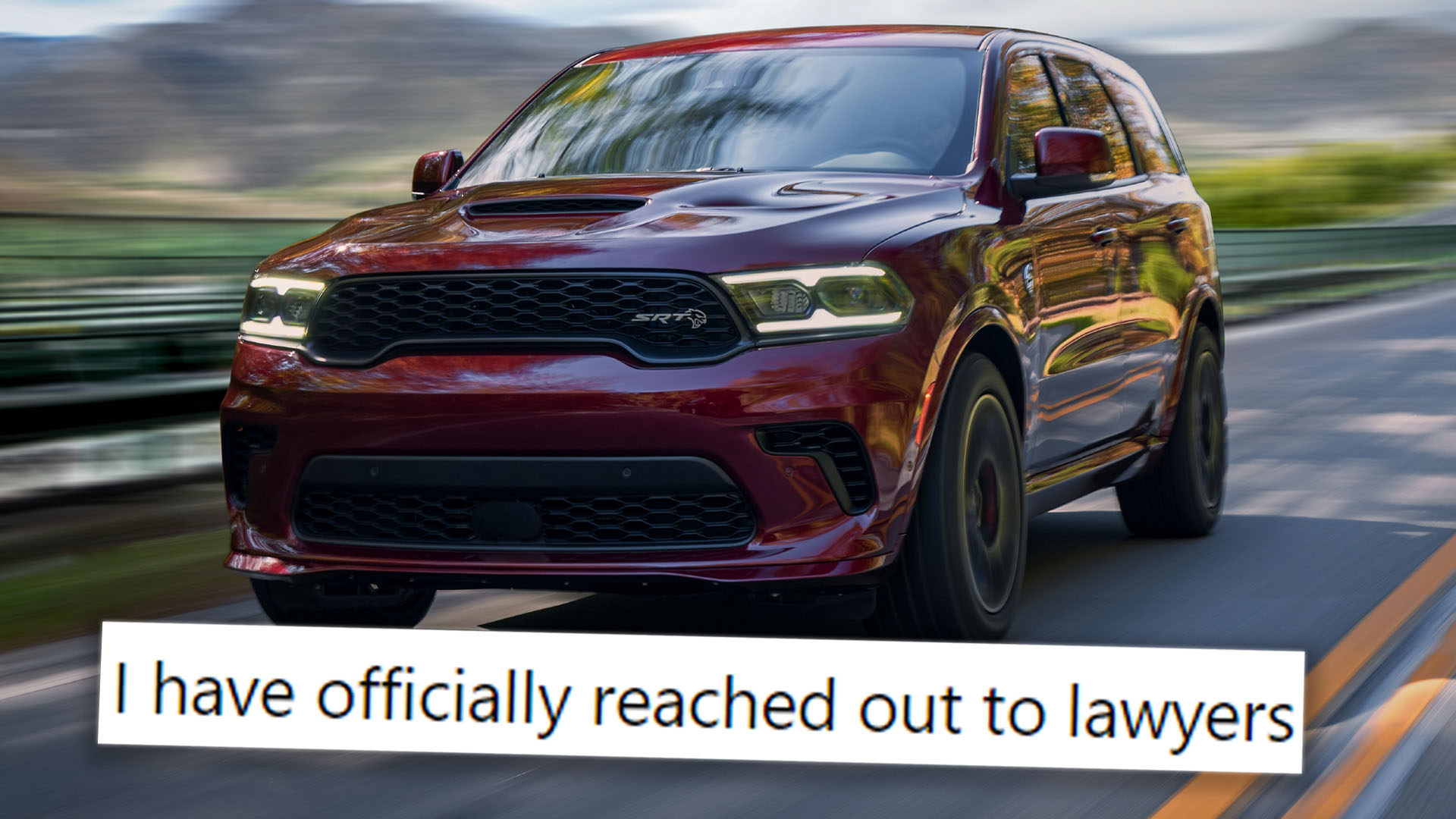

The Dodge Durango SRT Hellcat is returning to dealerships despite previously being discontinued. Around 3,000 units were built in 2021, and this short production run made it one of the rarest modern muscle machines out there. Now that it’s coming back, some Durango Hellcat owners are far from happy—and one even plans legal action.
This all stems from Dodge’s decision to resurrect the most powerful SUV in America before the Hellcat engine goes away with the Charger and Challenger in 2023. Shortly after the new model was announced, owners on social media gave mixed reactions. Some are glad there will be more Hellcats and others wonder how they pulled it off, but there’s a third group: owners who feel like their vehicles just lost a ton of value. They’re not worried about money alone, either, as some say it changes how they see their trucks personally.
One such owner is Stacy, who wants to be identified by his first name only for the sake of privacy. Stacy says he originally owned a regular Durango SRT, but when the opportunity arose to buy the rare, ultimate version of the SUV he already loved, he jumped at the chance despite the high price tag. “We justified the cost because of the exclusivity, potential collectibility, and that this will be our only chance to have one custom made with all the options we wanted,” he tells me.
Now that Dodge plans to make more, he’s frustrated. Frustrated enough to take legal action. “I had to do something if only out of principle,” he says. “If you ask me what I personally want as an outcome… it would be simply that they stick to their word and do not build any more.”
Stacy announced his decision in a private Durango Hellcat Facebook Group, where he was met with both support and grumbling. He says that owners largely share his view, although people who don’t own a Durango Hellcat are less sympathetic. “I get not everyone feels as offended by this blatant false advertisement as I do,” he adds.
But even if that’s the case, he believes Dodge CEO Tim Kuniskis owes owners an explanation. He doesn’t think Dodge really planned to offer the vehicle in the limited numbers initially stated, and instead used the first offering as a way to create a “sense of urgency and the idea of exclusivity.”

Stacy is currently consulting with an attorney who supposedly thinks there’s a potential case. The lawyer is reportedly still determining possible damages to owners. For its part, Dodge itself is not interested in addressing the controversy. In an email, a company spokesman told me that the automaker “politely declines the opportunity to comment on your questions at this time.”
Statements made previously by Kuniskis give some credence to Stacy’s potential case. Stacy cites remarks made by the brand’s chief executive at the vehicle’s launch event, where Kuniskis said “The Hellcat Durango will be a single model year run,” and that “You’ve only got one shot [to buy one].” Other official press materials cited by Stacy say much of the same. “The 2021 Durango Hellcat is only a single model-year run, ensuring that it will be a very special, sought-after performance SUV for years to come,” Kunskis is quoted as saying. Likewise, that press release states only 2,000 will be produced, a figure the automaker later increased to more than 3,000.
Others on social media echo Stacy’s frustration and have offered to support his efforts. “Count me in!” one person exclaims, noting they bought their Durango Hellcat largely because it was so exclusive. “I’m in as well. I paid MSRP because they said one year and done,” adds another owner. The list of supporters, at least in the Facebook group where Stacy announced his plan for legal action, is long.





The list of detractors is also long. Many believe Stacy has no ground to stand on legally and say it’s a hopeless to attempt to get any manner of resolution.
“There is nothing you can do. The company will use the pandemic as an excuse,” one says.
“Waste of time. I’ll be driving and enjoying my [Dodge Durango Hellcat],” said another.
Addressing them, Stacy says he understands their perspective and notes he’s not a legal expert. He still thinks something should be done, though. “I want what I was promised. I want them to be honest, truthful, and trustworthy as a company,” he tells me. “I get their job is to make the shareholders profitable but it shouldn’t be by deceiving their customers.”
“Now, if Stellantis would like to continue production despite our efforts then I think they should be punished for it and the people affected should be compensated,” Stacy concludes. “It is unethical and criminal.”
Whether deception took place may be something lawyers have to slug it out over. If the lawsuit proceeds, you’ll certainly hear more about it from us.
Got a tip or question for the author? You can reach them here: peter@thedrive.com